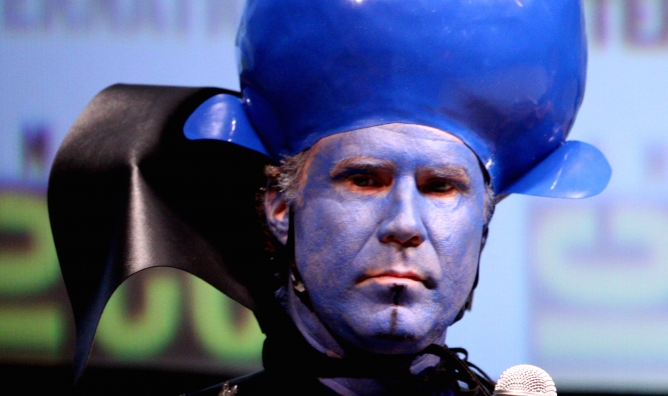How Social Media Turns Us Into Fools
When the usual Twitter email landed in my inbox an hour ago with a daily tweet that some computer algorithm calculated would be important to me, I had my finger poised on the delete button. However, after the milliseconds of attention I granted to the email I paused for a moment. Here was actor Will Ferrell making a comment on the violence in Ferguson Missouri. My eye’s were drawn toward the photograph of police in riot gear with a big armored vehicle behind them. Above was Ferrell’s tweet: “I don’t have words. How can you plead for peaceful protest when you show up like this?”
I don't have words. How can you plead for peaceful protest when you show up like this? #Ferguson pic.twitter.com/gRNiT2xUAP
— Will Ferrell (@WillyFerrell) November 25, 2014I don’t know Mr. Ferrell. I’ve never even met him. But, for some reason, these words didn’t ring true, even though over 13,000 people have re-tweeted them at the time I wrote this. I clicked on the tweet, which took me to the Twitter search page for everything “Will Ferrell”. Will’s smiling face, shot at some awards show, adorns the tweet. One more click on Mr. Farrell’s name, however, revealed the important truth.
Landing on the profile’s home page I read, “American comedian, actor, writer…...I am not Will Ferrell (This is a parody account ~ Not in any way affiliated with the actor Will Ferrell)”.
Much is being said about the effectiveness of social media in telling us the “truth”. Yesterday New York Times writer Anna North criticized St. Louis County prosecutor Robert McCulloch’s argument that (using North’s paraphrasing), “... social media had somehow hampered efforts to find out the truth about Michael Brown’s death ...”. North says this idea “... rang false to many, who felt that social media had in fact been a crucial tool for standing up to a justice system that seemed to be failing its citizens.” In the lengthy article, North rejects some criticisms of social media and returns back to McCulloch’s argument and defends the twitter-verse: “To some, what anti-social media arguments reveal is a fear of challenge, a fear that Twitter and other platforms may provide marginalized people with new tools for standing up to authority, new ways of speaking up.”
Ms. North’s op-ed is titled, “What Ferguson Says About the Fear of Social Media”. The title, and her conclusion, implies those of us who are questioning the validity of social media are fearful. It immediately reeks of the overused “phobia” suffix, which is used to indicate an overwhelming fear of whatever noun proceeds it. We are in an age where questioning new ideas often returns a response of having, using this example, social networking-phobia. Sadly, this is a bullying technique that roots back to playground peer pressure and “scardy-pants” scenarios. Those who question new perspectives should be no more vilified than the many who are criticizing long-held beliefs.
I’m not going to argue if social media has or has not accurately represented the situation in Ferguson, or anywhere else. But we are generations of fools if we believe every Tweet and Facebook post is “true.” Even more dangerous to our views of the world is if we believe there are no organized entities that are using social platforms to bias and distort reality to promote their own best interests. And creating a fake account with someone’s famous mug as a front is an easy way into 14,000 mailboxes. (Blogger Kevin Ashton gives us step-by-step instructions on how you can make a splash on social media for a mere $68.)
I have always believed the greatest danger our democracy faces is the disintegration of local journalism. Newsrooms have been amalgamated into corporate empires that are putting profits far ahead of good reporting. The local reporters were once an important watchdog of government and corporate bureaucracy. Now they are under pressure to return with a story that covers a very complex issue and boil it down to a 42 second soundbite and a 160 character tweet. In the meantime we have taught ourselves, and our children, that democracy can be understood with momentary attention to a topic before hitting the “retweet” and “comment” buttons.
Social networking has the tremendous potential to engage critical thought, but it requires at least as much time—if not more—than what is required to read an in-depth newspaper article (if you can still find one). Just as our media has become addicted to salacious headlines that grab eyeballs, so have many frequent Twitterers learned that writing a snappy tweet will result in copious retweets. Even better, put a famous face and name to your work, and you will fool thousands.
P.S. Finding the real Will Ferrell on Twitter isn’t easy.


